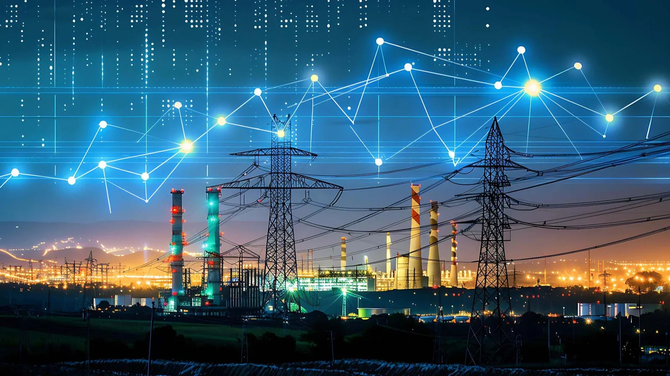The global energy landscape is undergoing a fundamental transformation. As the demand for cleaner, more reliable, and self-sustaining power grows, centralized energy systems are struggling to keep pace. Decentralizing energy supply with smart microgrid technology has emerged as a groundbreaking solution—reshaping how communities, industries, and organizations produce, store, and manage energy. This shift is redefining the future of sustainable business operations and accelerating the transition to a more resilient energy economy.
Understanding Smart Microgrid Technology
A smart microgrid is a localized energy network that operates autonomously or in coordination with the main grid. It integrates distributed energy resources such as solar panels, wind turbines, and battery storage systems, all managed through advanced software that optimizes energy generation and consumption. These intelligent systems can detect and respond to changes in real-time, ensuring stability, efficiency, and minimal energy waste.
By decentralizing energy supply with smart microgrid technology, businesses and communities gain greater control over their power sources. Unlike traditional grids that depend on centralized production, microgrids enable localized energy generation—reducing dependency, transmission losses, and vulnerability to large-scale outages. BI Journal notes that this decentralized approach not only enhances reliability but also aligns with global sustainability goals by promoting renewable energy adoption.
The Role of Decentralization in Energy Supply
Decentralization is transforming how societies view energy security. Instead of relying on large, centralized plants that transmit power across vast distances, decentralized systems empower local entities to generate and manage their own energy. This model reduces pressure on national grids while promoting efficiency and resilience.
Energy decentralization also supports the transition to renewable sources. Smart microgrids integrate green technologies seamlessly, ensuring optimal performance through intelligent automation and data analytics. As Business Insight Journal highlights, decentralization fosters collaboration between technology, policy, and business innovation—creating energy ecosystems capable of self-sufficiency and adaptability in times of disruption.
Benefits of Decentralizing Energy Systems
The benefits of decentralizing energy supply with smart microgrid technology extend far beyond sustainability. It strengthens energy independence, allowing communities and companies to operate even when the main grid fails. Cost efficiency improves as organizations can optimize energy use and store excess production for later consumption or redistribution.
Additionally, smart microgrids contribute to carbon neutrality by minimizing energy loss and maximizing the use of renewable sources. They also create economic opportunities by enabling new business models in energy trading and management. As climate change intensifies and energy demands grow, decentralized networks offer the flexibility and security essential for long-term progress.
Technology Integration and Smart Infrastructure
The effectiveness of smart microgrid systems depends on their integration with cutting-edge technology. Advanced sensors, artificial intelligence, and real-time analytics form the foundation of these systems. AI-driven forecasting tools predict consumption trends, while IoT devices monitor performance and optimize operations autonomously.
This level of automation enables energy systems to self-correct, reroute supply, and maintain stability during disruptions. Moreover, microgrids can incorporate blockchain technology to facilitate transparent energy transactions and peer-to-peer energy sharing within communities. Platforms like The Inner Circle (https://bi-journal.com/the-inner-circle/) serve as valuable spaces for leaders and innovators to exchange insights, best practices, and emerging trends that drive smarter energy management.
Building Sustainable and Resilient Energy Models
Sustainability and resilience are at the core of decentralized energy systems. Businesses adopting smart microgrid technology can drastically reduce carbon emissions, minimize dependency on fossil fuels, and enhance energy access in remote or underdeveloped regions. Resilient microgrids also provide backup power during natural disasters or grid failures, ensuring continuity of essential services.
According to BI Journal, the future of energy will depend on the synergy between decentralization, digitalization, and decarbonization. Companies that invest in microgrid solutions today are positioning themselves as pioneers in responsible innovation and environmental stewardship. By empowering organizations to control their energy destiny, decentralization supports a cleaner, more equitable energy future.
For more info https://bi-journal.com/decentralizing-energy-supply-through-smart-microgrid-technology/
Conclusion
Decentralizing energy supply with smart microgrid technology represents a defining moment in the evolution of sustainable infrastructure. It offers a pathway to greater autonomy, security, and environmental responsibility. By leveraging digital innovation and collaborative leadership, businesses can create scalable, efficient, and resilient energy ecosystems that align with global sustainability goals. The future of energy is local, intelligent, and decentralized—and those who embrace it will lead the next era of sustainable growth.
This news inspired by Business Insight Journal: https://bi-journal.com/



